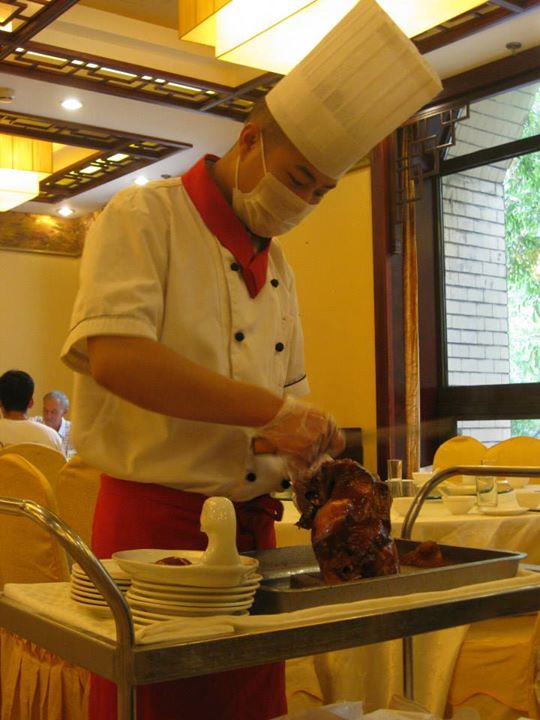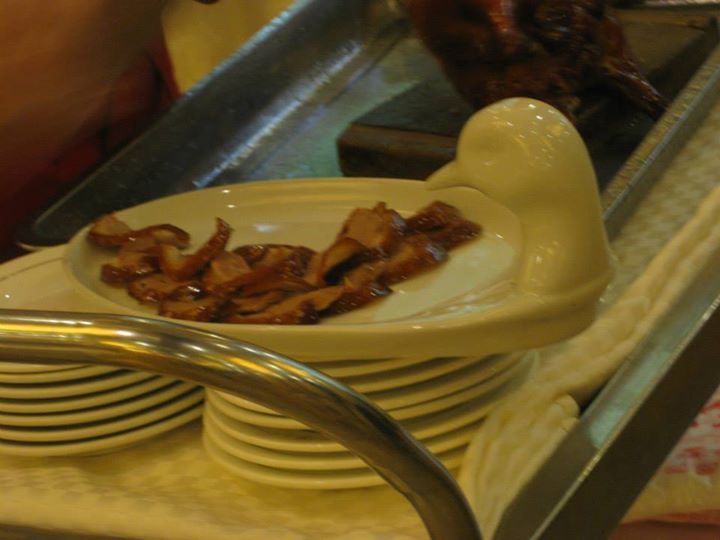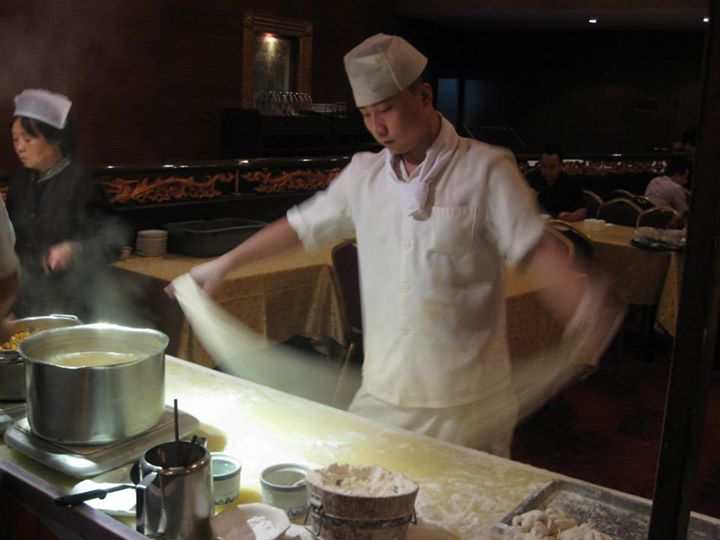Writer and traveler Deborah Cater once said, “You have to taste culture to understand it”—and she wasn’t wrong. When you go to a foreign country and choose to eat only foods you are familiar with then you’re doing yourself a disservice. Traveling is all about trying new things—and food is one of the most important ones. In China, there are so many unique local dishes to try so you shouldn’t let fear of the unknown get in the way of experiencing the country like the locals do.
Sure we’ve all gone to our local Chinese takeout place and have ordered the pork Lo Mein or General Tso Chicken, but if you take the time to explore the country you’ll find non-Americanized Chinese food that’s definitely worth a try.
One of the most popular dishes to try if you find yourself in Beijing is the Peking Duck. This famous dish has been prepared since the imperial era and is served with steamed pancakes and eaten with scallion, cucumber and sweet bean sauce. Traditionally the meat is sliced thin by the cook right in front of you, which is definitely fun to watch. Two of the most notable restaurants are Quanjude and Bianyifang in Beijing, China.

A chef prepares to carve a Peking Duck.

Peking Duck is traditionally served on a duck shaped plate.
We all know that Italy is famous for their pasta; but did you know that the world’s oldest known noodles were actually discovered along the Yellow River in China? Dating back to roughly 4000 years BP, noodles have been a staple food in China—and watching hand pulled noodles being made is definitely something to go see if you visit. Hand pulled noodles, or Lamian, is made by stretching and folding the dough into strands. This unique method of making noodles originated in China and dates back to 1504. Lamian literally means pull or stretch, lā, (拉), noodle, miàn (麵) and watching a professional noodle chef pull noodles is a tourist attraction in itself!

The process of preparing hand pulled noodles is so quick that it happens in a blur!
Whether you’re traveling to China, or any other country, make sure that if you have food allergies you are well prepared. The chefs know what ingredients they use to prepare their food with and a language barrier shouldn’t stop you from being safe. Having a restaurant card is a great way to stay safe, and still be able to enjoy many of the delicious unique foods available. The card clearly states in another language the types of food you are not allowed to eat and your servers and chefs can take it from there.

Gluten-Free restaurant card picture taken from www.chinahighlights.com/
Also, take the time to find out if the water is safe to drink in your country of origin. Often times it’s just easier to choose to drink only bottled water for the duration of your stay. You know it’s clean and safe, and you definitely don’t want to get sick while studying abroad!
________________________________________________________________________________
–Sam Levitz is a graduate of Brooklyn College and went on the CUNY Study Abroad trip to China the summer of 2013. Follow her on Instagram: slevitz
Follow the Campus Clipper on Twitter and Like us on Facebook!
Interested in more deals for students? Sign up for our bi-weekly newsletter to get the latest in student discounts and promotions and follow our Tumblr and Pinterest. For savings on-the-go, download our printable coupon e-book!

